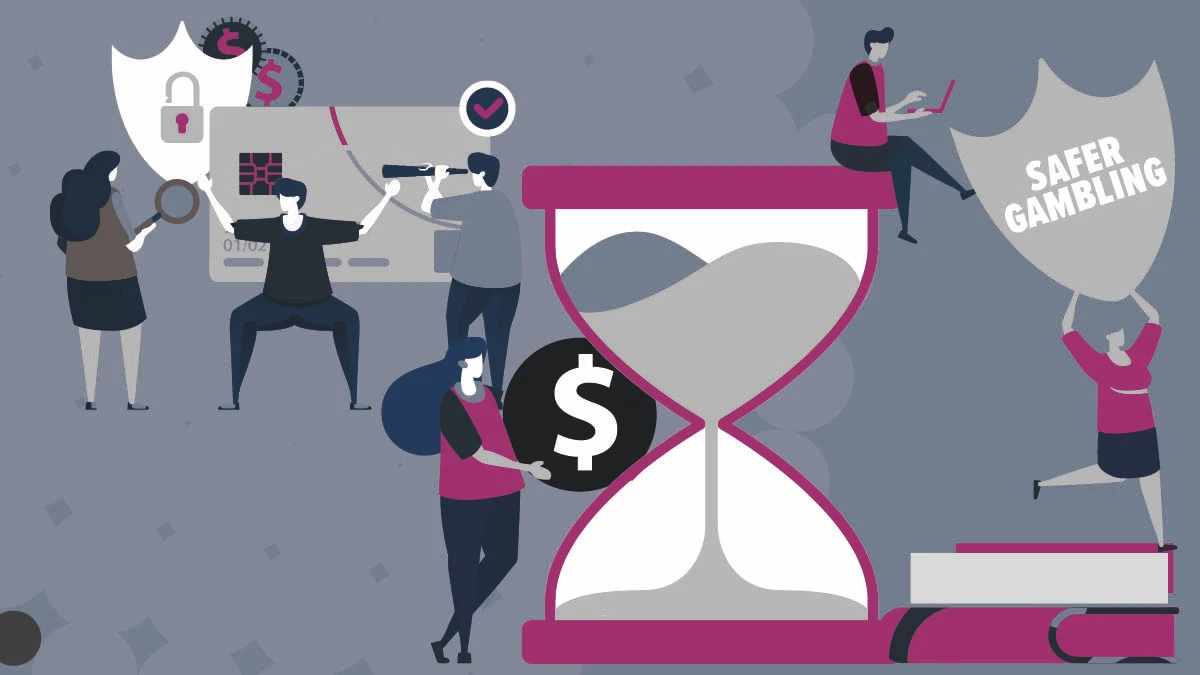Creating responsible marketing

Igaming is one of those areas that is incredibly well-regulated. Governing bodies and advertising standards agencies have put strict regulations and guidelines in place to ensure that all content is of the highest standard. Those who create marketing content for igaming therefore need to stay within the rules.
Responsible marketing is needed as ad campaigns are often what can drive conversions for a site. Whether they are encouraging new players to sign up or existing ones to redeposit to earn extra bonuses, marketing is at the core. Therefore, there is a degree of responsibility here to check that marketing campaigns do not accidentally target demographics they are not aimed at, or players categorised as high-risk when it comes to problem gambling. Successfully staying within the guidelines will allow operators and affiliates to create engaging and interesting marketing campaigns without putting the most vulnerable at risk.
Differentiate betweeen VIPs and players at risk
Operators need to keep an eye on their players to help identify those more at risk than others – no easy task as at-risk players’ spending habits may be similar to some VIP customers betting safely and within their means.
Both tend to make larger deposits than the average player, but they can be for very different reasons. A VIP gambler might be putting down bigger amounts to help meet the threshold to maintain their status. They could also be following a high-roller playing style: depositing more but with the aim of betting – and potentially winning – more. They might be depositing a lot, but they are still playing within their means.
There is a difference, however, in the way an at-risk player might deposit. When they deposit more, it could be because they are trying to win back what they have already lost. Unlike the VIP playing within their means, the at-risk player could be playing with money they do not have.
Therefore, it is vital that operators are able to recognise these different customer journeys. Support needs to be in place to offer interesting deals to VIPs and other safe players, but care must be taken not to target players who could be considered vulnerable. Rather than offering them a deal that could be misconstrued as a way of helping them out of their predicament, emphasis should be placed on offering them resources they can use to address the issues they have with gambling.
Creating bespoke safer gambling campaigns
This will therefore lead to operators investigating how they can create bespoke safer gambling campaigns. Ideally, marketers will look for ways in which they can promote safer gambling regardless of whether or not it is Safer Gambling Week.
A great example can be found at William Hill. As one of the UK’s largest casinos and sportsbooks, the chance of someone interacting with its marketing materials is fairly high. With this comes a responsibility to make sure its promotional materials have that safer gambling message in place. William Hill has actually chosen to allocate 20% of its TV coverage to promoting safer gambling.
Brands and affiliates need to have other measures in place. For example, all social media creatives and marketing materials need to include the new “Take Time To Think” slogan together with the BeGambleAware.org link that has replaced the “When The Fun Stops, Stop” campaign. They also need to create safer gambling hubs to direct players who might have a problem to the right help resources.
The need to promote safer gambling goes beyond the brands themselves. Affiliate marketers need to understand the goals and targets for safer gambling that they have set out. When creating campaigns, affiliates need to promote the brand in a way that is compliant with safer gambling regulations, just as the operators themselves do.
There are many safer gambling resources already available, but marketers need to create a clear path between problem gamblers and these resources. Working with the Betting and Gaming Council (BGC), many of the UK’s biggest casino brands have developed rigorous safer gambling commitments and checks. With these, and those provided by self-exclusion tools like Gamstop, marketers should have all they need to build bespoke safer gambling campaigns that inform and engage players without encouraging them to gamble outside their means.
Demographic targeting
A lot of different factors go into creating a fantastic marketing campaign, one of which is demographic targeting.
Many operators and industry watchdogs are concerned about the number of young gamblers, which includes both those over the minimum age threshold but who are potentially vulnerable, and also minors who attempt to gamble online. Marketing content should be age-appropriate, so marketers must make certain their materials meet the right standards. In terms of affiliate marketing, affiliates might receive creatives through their programme. Importantly, they still need to check that information and CTAs for safer gambling support are present on all marketing materials. Support from brands and affiliate managers should help them to lay out some of the dos and don’ts of creating good advertising materials that attract people to the operators while also supporting safer gambling.
One important channel that needs restrictions is YouTube. Brands and operators should ensure that any videos uploaded are age-restricted to those aged over 18 only. By doing this the age restrictions will hold in place – even if the videos are embedded on other sites.
There are even conversations as to whether or not we should treat gambling advertising and marketing materials in the same way that we do alcohol advertisements. This would mean raising thresholds to target those customers aged 25 or over instead. The younger, more vulnerable demographic would then be avoided. This, together with stringent age verification checks at casinos and affiliate sites, would help to reduce the number of young people seeing and engaging with gambling marketing.
Has Covid-19 had an impact?
Covid-19 has affected many aspects of the gambling industry, including how gambling adverts are perceived. It has been noted by many industry bodies that gambling increased during the pandemic.
Despite many sporting activities grinding to a halt, there has also been a sizeable increase in sports betting. Some bodies have voiced concerns about sports sponsorship. With sports such as football attracting fans of all ages and demographics, including those of primary school age, is it really appropriate for gambling operators to sponsor teams?

In addition to this, many have called for a reduction in the number of gambling ads shown on television. While these adverts must meet a strict set of criteria and can only be shown at certain times of the day, some still believe that they have no place on TV – even after the watershed.
To fight their corner, operators and affiliates will need to put the work in to ensure their materials are promoting responsible gambling as much as possible. As can be seen from William Hill’s lead, there is already a precedent for supporting responsible gambling while also ensuring that the safeguards are in place to create responsible marketing.
Creating responsible marketing
Responsible marketing campaigns are a must for every operator and brand in the igaming industry. They should be an intrinsic part of every campaign, not an afterthought. It is the responsibility of the operator to ensure that they have materials in place to help potential problem gamblers, but affiliates also need to ensure that their marketing campaigns also comply with the latest safer gambling guidelines at all times.
There are growing concerns about the impact, frequency and reach of gambling adverts. The onus is on marketers to ensure they are doing everything in their power to recognise players that are at risk, while also creating safe and interesting content for those who are not. Creating bespoke and safe gambling campaigns needs to be a priority as this will help to prove that the igaming industry is doing everything in its power to promote its products safely. This is not something that should be focused on every now and then, but an ongoing project that shifts and moves as the industry does in response to the wider public and political landscape.

